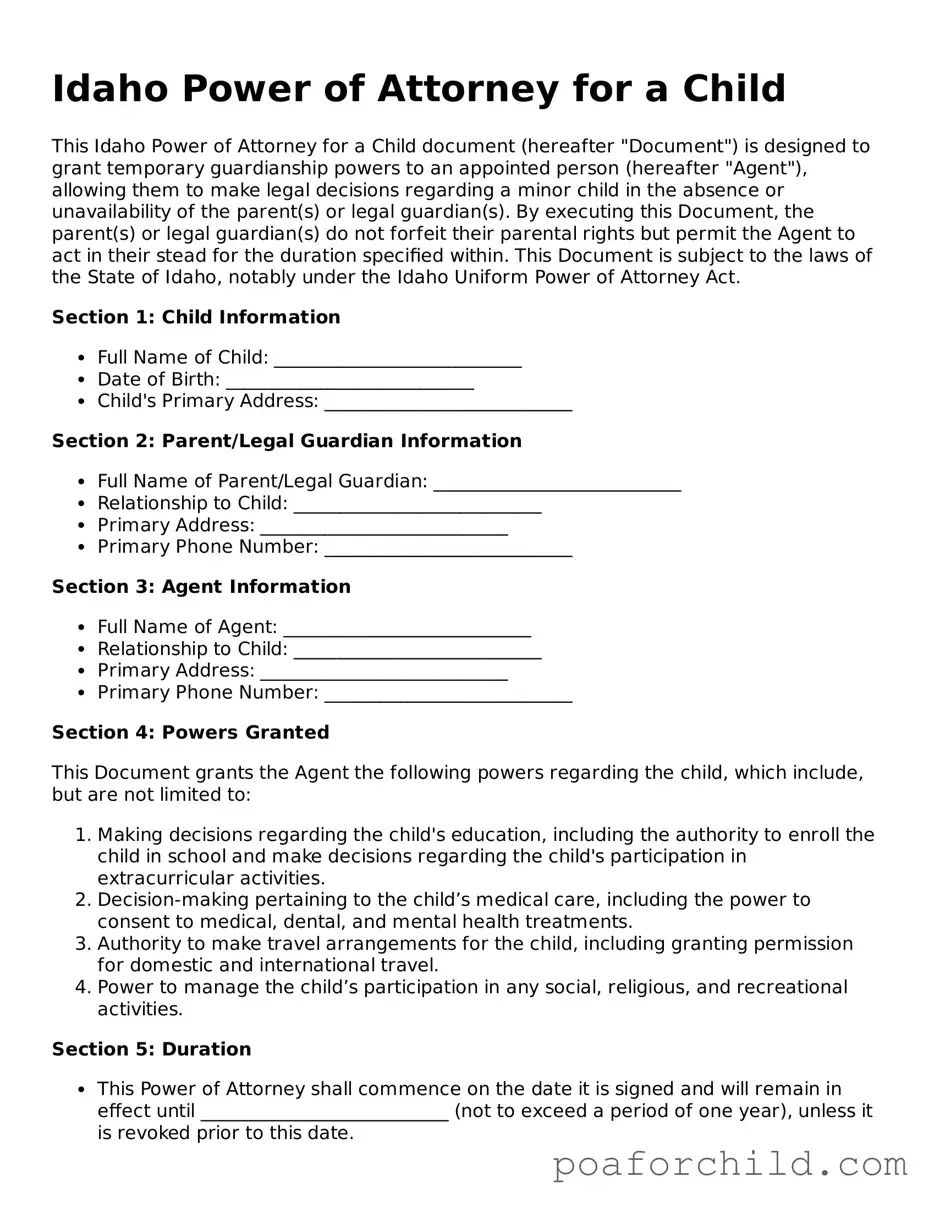Detailed Guide for Using Idaho Power of Attorney for a Child
Granting someone else the authority to make decisions on behalf of your child can be a significant step. Whether due to travel, illness, or other personal reasons, the Power of Attorney (POA) for a Child form in Idaho is designed to officially delegate these responsibilities. Completing this form accurately is crucial to ensure that the chosen agent has the proper legal authority to act in the child's best interests. Below are detailed instructions to aid you in filling out the Idaho Power of Attorney for a Child form accurately and effectively.
- Start by entering the date the Power of Attorney will become effective. Be sure to use a format that includes the month, day, and year.
- Write the full legal names of the parent(s) or current legal guardian(s) granting the POA, along with their complete address.
- Identify the appointed agent by writing their full legal name and address. This is the person who will be granted the authority to make decisions for the child under the POA.
- Enter the full legal name(s) and birthdate(s) of the child(ren) to whom the POA applies. If the POA is for more than one child, make sure to list each child separately, along with their specific information.
- Specify the powers being granted under this POA. This will involve detailing the types of decisions the agent is authorized to make on behalf of the child(ren), such as educational, healthcare, or general welfare decisions.
- Include any special instructions or limitations to the agent’s powers. This could involve specifying certain decisions that the agent is not authorized to make or setting a timeframe for the POA’s validity.
- Sign and date the form in the presence of a notary public—or other authorized official—along with the appointed agent. The notarization process is a crucial step to validate the POA.
- The form may also require witness signatures, depending on state laws. If needed, ensure that witnesses are present to sign the form at the same time.
- Keep a copy of the signed Power of Attorney for your records and provide the original to the appointed agent.
Once the form is fully completed and notarized, the agent will then have the legal authority to act on behalf of the child(ren) according to the specified terms. It's important to communicate clearly with the appointed agent about their responsibilities and expectations while they hold this position. Remember, the safety and welfare of the child(ren) are paramount, and this document plays a pivotal role in ensuring their well-being is maintained during your absence.
